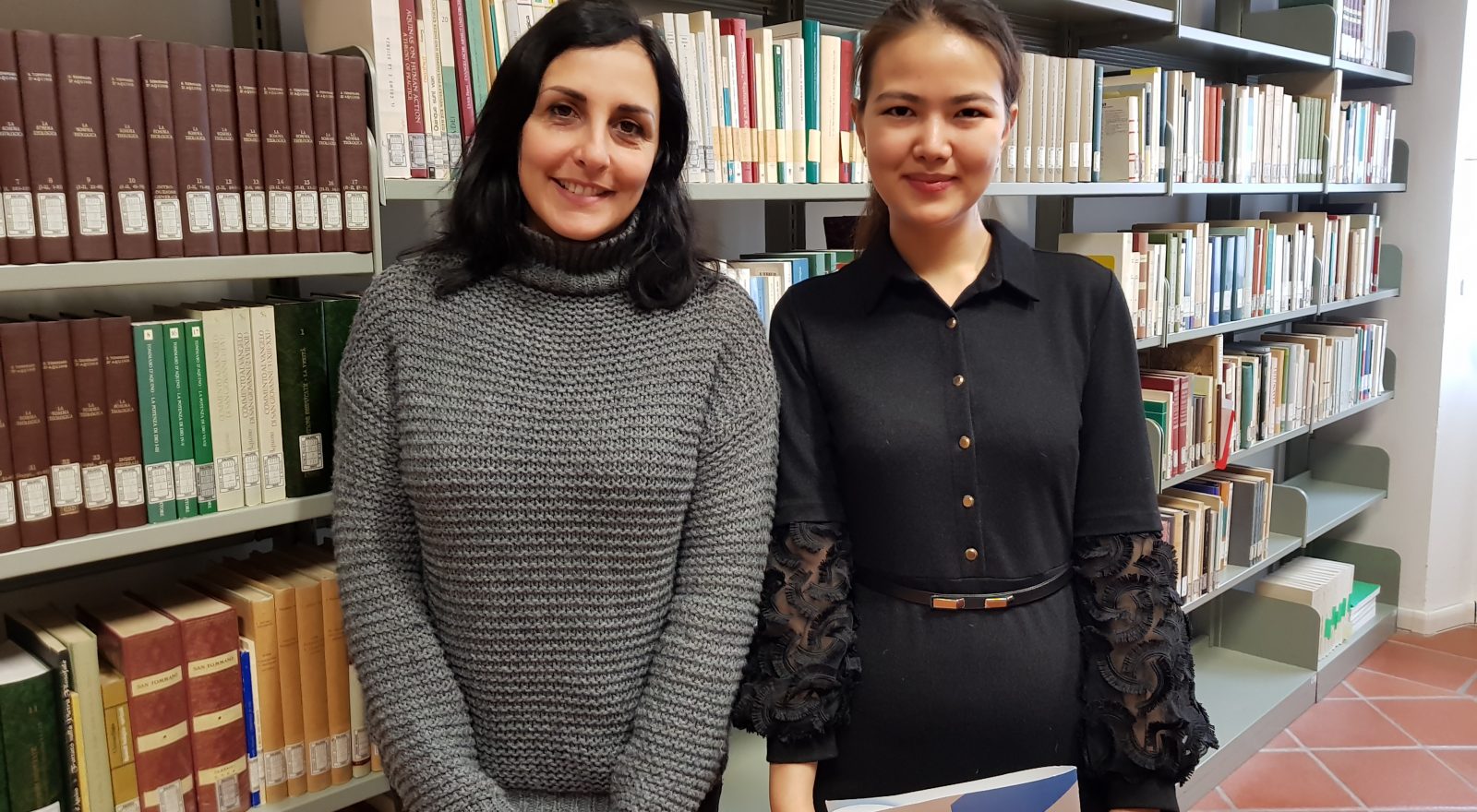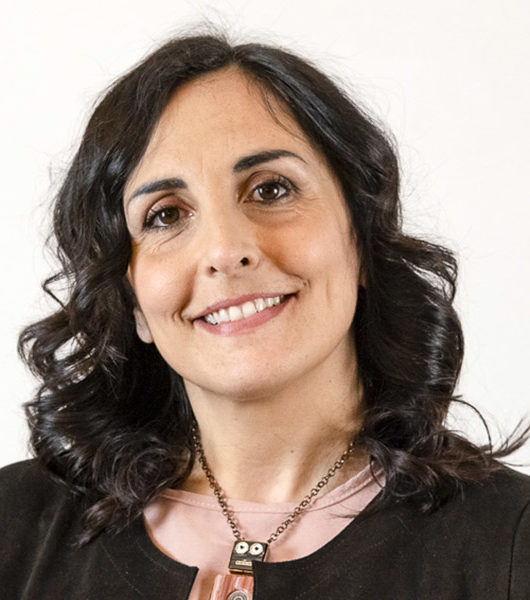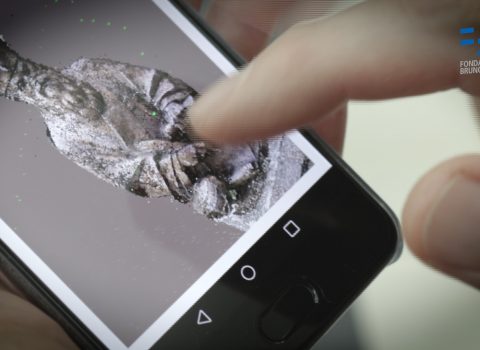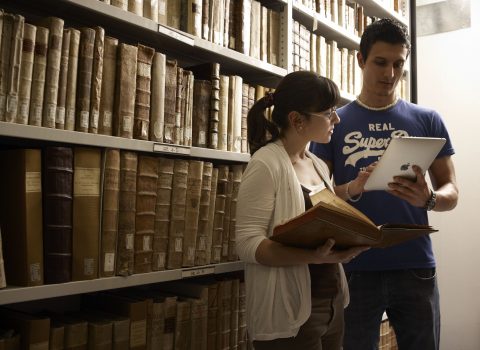Talking about technology, religion and innovation
An interview with researcher Sara Hejazi: Sara was born in Iran and studied in Italy. She is an anthropologist with a focus on religions, gender perspectives and identity construction through body practices and symbols
In the framework of the internship program for Master students of al-Farabi Kazakh National university and its Department of Cultural and Religious studies, I visited FBK from 27 February until 9 March 2018. Here is an interview with Sara Hejazi that I gave in the last days of my internship experience:
IAN: How does religion relate to technology? Does technology influence religion in any way?
SH: Technology is part of everyday life, just like religion is part of everyday life for contemporary human beings. So, how do they relate to each other? Simply, we know that religion is not something that is fixed in time, unchangeable. Religion is made of religious people. And people change as cultures change, because, generation after generation, each one leaves something new to the next one. So, actually technology is today embedded in religion, because religious communities are used to move and meet or connect with each other, also through technology, so it is really a fundamental part of religion and as society changes also religious communities are changing.
IAN: How is innovation understood and experienced within religious traditions and communities of faith or belief?
SH: «Religion and innovation» is the mission of the Center for Religious Studies at FBK, which I belong to; we want to investigate the relationship between religion and innovation. In order to understand better our mission, we represented a «Triangle» showing «Religion in innovation», «Religion of innovation» and «Religion through innovation», which means that the relationship has many different aspects. So, for example, «Religion in innovation» is about religious communities who are living some innovating traits. «Religion of innovation» is about some people, especially in Europe, who believe that technology and science are a new religion, they do believe in technology as a religion, because it has great power. This is another religion, actually. So this is another «Religion of innovation» and then again the innovation that is produced by religious communities, because, for example, the fact that in Italy many people have been converting, shifting from Catholic religion to another religion is considered as innovation. Our mission is to understand all these different aspects. Also, why not, understand why conflicts, wars and violence are embedded in religion. So, this is an innovation too, interpreting religion as entailing violence.
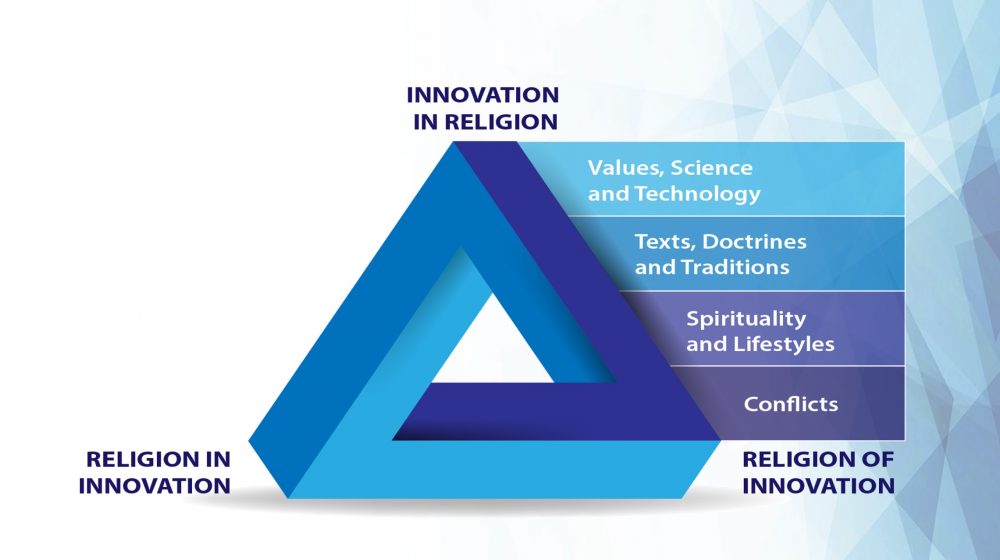
IAN: There were students from Kazakhstan that attended your workshop called «Religion and Video Games» before, who were very impressed. Would you tell me more about this workshop?
SH: This workshop is about semiotics, which is an academic research field that studies languages and sciences, and the way in which they express themselves. So this workshop «Religion and Video Games» was about understanding better the eventual relationship that religion has with images within the context of videogames. There is a topic, an academic research field which tackles it and puts together two things that are normally not put together; but be careful because, actually, the item of the research field «media and religion» already exists. So, videogames in religion are just a subfield of the brother-field of media and religion. It’s in relationship with studies like religion in literature, in films, it is just a subfield, that analyzes the languages, the semiotics, the science expressed by videogames in religion.
IAN: My research theme is «Modern technologies for spreading Islam in Kazakhstan», can I ask for some advice, which technologies can I emphasize here?
SH: You can emphasise any technology that is very common in everyday life. So, first of all, of course, apps for smartphones, everybody is using cell phones and everybody is using apps. Apps can be used for different reasons, for example, to map the territory, so you can know where and when you or your friends, the believers of one faith, are meeting, and, for example, you can find where Qibla is thanks to the help of an app. Technology works for religion only if people already find these technologies friendly. So, I think all people, including young people, are using smartphones and any technology that goes trhough this. For example, there is also an app for the interpretation of some verses of the Quran, so when you have doubts, you can ask this app «Is this ok? Is this halal (permitted)? Is this haram (prohibited)?», and through the app an Imam or someone else expert answers your questions. So, technologies are already very useful; for example in Islam, I am sure, that any apps that have to do with the practice of Islam can help.
IAN: What are the upcoming workshops and lectures you’re planning?
SH: The whole year is planned to investigate the relationship between Religion and Innovation. Do you know that in Berlin they have built for example a Temple which is a church, synagogue and mosque all together, it is very interesting. In Europe we know we have many examples of places of worship that are not only of one religion but cover all religions, and they are called, for example, «Rooms of silence». You can find them in universities, in hospitals and in airports. They are places for any religion, so they don`t have symbols. If you are muslim, buddist, Christian, you can go and pray there when you need it. So religion and innovation is going to be concentrated on the spaces and ways those spaces are changing in Europe, especially, in the big cities of Europe, that of «The House of Prayer and Learning» in Berlin is just one example.
If you interested any detailed information about al-Farabi Kazakh National University and its Department of Cultural and Religious studies, please visit http://www.kaznu.kz/en/10844/page/
If you have specific questions, feel free to send me an .
The contact person for institutional relations with the Republic of Kazakhstan is , FBK research liaison officer.
